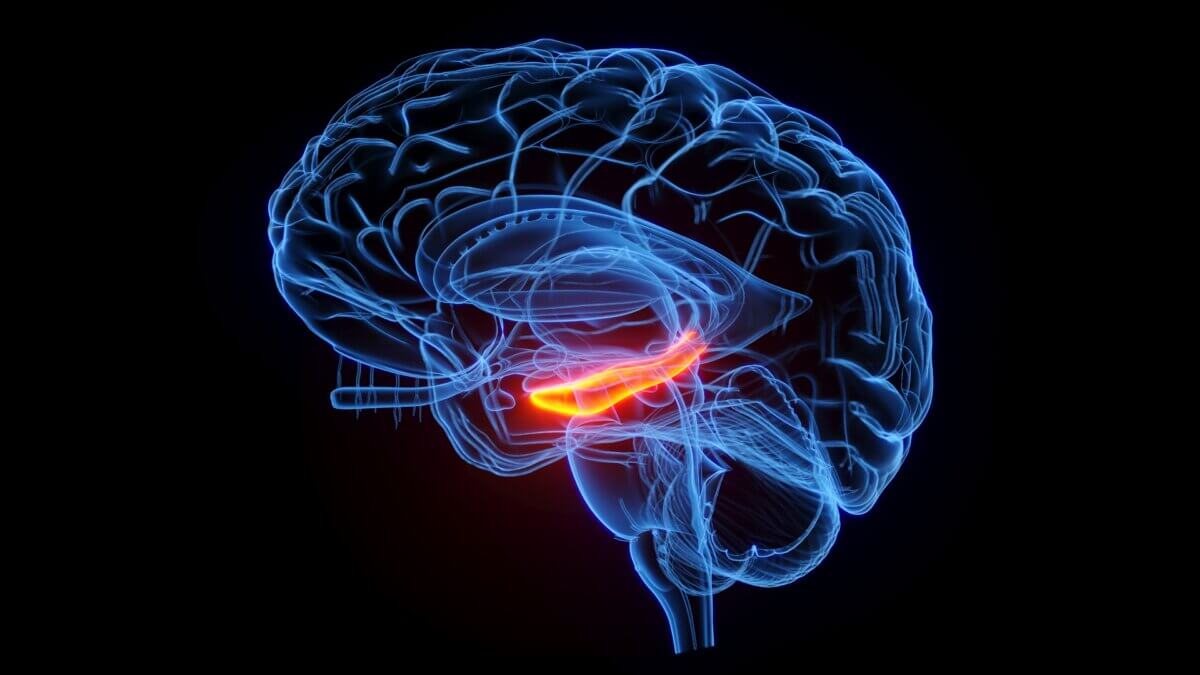
(© Prostock-studio - stock.adobe.com)
NEW YORK — Have you ever stopped to consider how your brain keeps track of all the goals in your life - the ones you've already achieved, the ones you're currently working on, and those still on the horizon? A fascinating new study by researchers at the Icahn School of Medicine at Mount Sinai has shed light on the role of a key brain structure, the hippocampus, in organizing our goals across different timeframes.
Imagine your brain as a time machine, constantly juggling tasks from your past, present, and future. Scientists say that this mental time travel isn't just a figure of speech — it's reflected in the physical organization of our brains. That's because the hippocampus, a seahorse-shaped structure crucial for memory, processes our goals differently depending on whether they're current priorities or tasks for the past or future.
This study, published in Nature Communications, shows how our brains organize information about time. The researchers found that when we think about current goals, the rear portion of the hippocampus activates. In contrast, when we contemplate past accomplishments or future plans, the front part of the hippocampus lights up. This division suggests that our brains have a built-in filing system for organizing tasks based on their temporal relevance.
The implications of this discovery are far-reaching. It sheds light on how we manage complex sets of goals over time and could potentially lead to new insights into conditions like depression, where individuals often struggle with goal-setting and time perception. Moreover, it expands our understanding of the hippocampus, a brain region traditionally associated with memory formation and spatial navigation.
To uncover these insights, the research team, led by Alison Montagrin and colleagues, designed an innovative experiment that placed participants on a simulated four-year mission to Mars. This clever setup allowed the researchers to control and manipulate the temporal relevance of various goals while keeping other factors constant.
As participants progressed through their virtual Mars years, they had to continually reassess the importance of different tasks. A goal that was once in the distant future (like repairing a space helmet in year three) would eventually become a current priority and then shift to a past accomplishment. This design enabled the researchers to observe how the brain's response to the same goal changed as its temporal context shifted.

Methodology
The study involved 31 healthy participants who underwent a two-day experiment. On the first day, they learned about 30 different goals related to their simulated Mars mission. These goals were divided into categories like maintaining the space shuttle, caring for their spacesuit, nutrition, exercise, and recreational activities.
On the second day, participants entered a powerful 7-Tesla MRI scanner to complete the main experiment. Inside the scanner, they were shown each goal and asked to indicate when it needed to be accomplished — whether it was relevant to the current year, the near or distant future, the near or distant past, always needed, or never needed.
The key to this experiment was that participants “moved through time” as they progressed, reevaluating the same set of goals from different temporal perspectives. This clever design allowed the researchers to isolate how the brain's response to a goal changed based solely on its temporal relevance, without altering any other properties of the goal itself.
Results
The study yielded several intriguing findings:
- Reaction Time Differences: Participants were quicker to process goals relevant to their current situation compared to past or future goals. This suggests that our brains give preferential treatment to immediate priorities.
- Hippocampal Activation Patterns: When participants thought about current goals, it activated the posterior (rear) portion of the left hippocampus. In contrast, contemplating past or future goals activated the anterior (front) portion of the left hippocampus.
- Left vs. Right Brain Differences: The temporal dissociation of goals was more pronounced in the left hippocampus compared to the right. This aligns with previous research suggesting that the left hippocampus is more involved in processing sequential and associative information.
- Whole Brain Effects: While the study focused on the hippocampus, a broader analysis revealed that temporally removed goals activated more anterior brain regions overall, while current goals activated more posterior regions.
‘‘These results are particularly interesting because previous studies have shown that when we call on our episodic memory or our spatial memory, the anterior region of the hippocampus is involved in retrieving general information, while the posterior part deals with details. It will therefore be interesting to explore whether - unlike immediate goals - projection into the future or recall of a past goal do not require specific details, but a general representation is sufficient,’’ explains Alison Montagrin, a research and teaching fellow in the Department of Basic Neurosciences at the UNIGE Faculty of Medicine, and a former post-doctoral fellow at the Icahn School of Medicine, in a media release.
Limitations
While this study provides valuable insights, it's important to acknowledge its limitations:
- Artificial Setting: The use of a simulated Mars mission, while clever, may not perfectly mirror how we process real-life goals. The artificial nature of the task could potentially influence how participants engaged with the goals.
- Sample Size and Demographics: With 31 participants, the study has a relatively small sample size. Additionally, the participants were all healthy adults, which may limit the generalizability of the findings to other populations or age groups.
- Focus on Short-Term Goals: The study examined goals within a four-year timeframe. It's unclear whether the same patterns would hold for very long-term goals or life ambitions.
- Reliance on fMRI: While functional MRI is a powerful tool, it measures brain activity indirectly through blood flow changes. This introduces some limitations in temporal and spatial resolution.
- Potential for Memorization: Despite efforts to encourage participants to think about the goals in terms of time, there's a possibility that some participants relied on memorization strategies rather than truly engaging in mental time travel.
Discussion and Takeaways
The findings of this study open up exciting new avenues for understanding how our brains process and organize goals across time. They suggest a new view of the hippocampus, expanding its known roles beyond memory and spatial navigation to include the temporal organization of goals. This insight into goal management could explain how we juggle complex sets of priorities in our daily lives, efficiently focusing on current needs while keeping future goals in mind.
The research also has potential implications for mental health, particularly conditions like depression where individuals often struggle with goal-setting and time perception. Understanding how the healthy brain organizes goals temporally could potentially lead to new therapeutic approaches.
The distinct neural patterns observed for current versus temporally distant goals suggest that our brains have evolved specialized mechanisms for dealing with different timeframes. This could reflect the importance of both immediate survival needs and long-term planning in human evolution. The stronger effects observed in the left hippocampus align with previous research suggesting that the left side of the brain is more involved in processing sequential and time-based information.
This study also opens up numerous questions for future investigation. Researchers may explore how these patterns develop over the lifespan, whether they are altered in conditions affecting memory or executive function, and how the brain transitions goals from “future” to “present” to “past” categories. Understanding how the brain represents goals across time could have broader implications for fields like economics, where temporal discounting plays a crucial role in decision-making.
By demonstrating a physical separation in how the hippocampus processes current versus temporally distant goals, the research offers new insights into the neural basis of goal management and time perception. While there's still much to learn, these findings lay the groundwork for a deeper understanding of how we navigate the complex landscape of our personal goals and ambitions across time.










